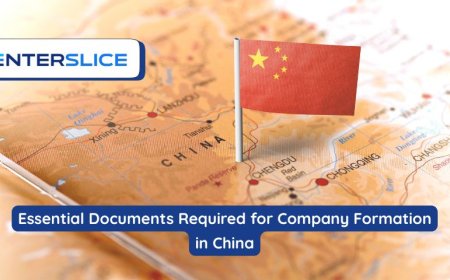How eCommerce Aggregators Are Changing the Way Online Businesses Are Bought and Sold
The eCommerce landscape has undergone a significant transformation in recent years, driven by technological advancements and changing consumer behaviors. One of the most notable developments in this space is the rise of eCommerce aggregators. These companies are reshaping the way online businesses are bought and sold, offering new opportunities for entrepreneurs and investors alike. In this article, we will explore how eCommerce aggregators are changing the game, the benefits they provide, and what this means for those looking to sell an eCommerce business.
Understanding eCommerce Aggregators
eCommerce aggregators are companies that acquire and manage multiple online businesses, typically in the same niche or industry. Their goal is to streamline operations, enhance profitability, and ultimately increase the value of the businesses they acquire. By consolidating resources and expertise, these aggregators can create efficiencies that individual business owners may struggle to achieve on their own.
The rise of eCommerce aggregators has been fueled by the rapid growth of online shopping, particularly during the COVID-19 pandemic. As more consumers turned to eCommerce for their shopping needs, the demand for established online businesses surged. Aggregators stepped in to capitalize on this trend, providing a viable exit strategy for Consumer product company looking to sell their eCommerce businesses.
How eCommerce Aggregators Operate
eCommerce aggregators typically follow a systematic approach to acquiring and managing online businesses. Here’s a closer look at how they operate:
1. Identifying Target Businesses
Aggregators often focus on specific niches or product categories, allowing them to leverage their expertise and resources effectively. They look for businesses with strong brand recognition, solid customer bases, and potential for growth. By targeting established businesses rather than startups, aggregators can minimize risk and maximize returns.
2. Streamlining Operations
Once an aggregator acquires a business, they work to streamline its operations. This may involve optimizing supply chains, improving marketing strategies, and enhancing customer service. By implementing best practices across their portfolio of businesses, aggregators can drive efficiencies that lead to increased profitability.
3. Leveraging Economies of Scale
One of the key advantages of eCommerce aggregators is their ability to leverage economies of scale. By consolidating purchasing power and resources, they can negotiate better deals with suppliers, reduce costs, and improve margins. This competitive advantage allows them to enhance the overall performance of the businesses they manage.
4. Focusing on Growth
Aggregators are not just interested in maintaining the status quo; they actively seek to grow the businesses in their portfolio. This may involve expanding product lines, entering new markets, or investing in marketing initiatives. By focusing on growth, aggregators can increase the value of their acquisitions and generate higher returns for their investors.
The Benefits of Selling to eCommerce Aggregators
For entrepreneurs looking to sell their eCommerce businesses, partnering with an aggregator can offer several advantages:
1. Quick and Efficient Sales Process
Selling an eCommerce business can be a DTC brand growth and time-consuming process. eCommerce aggregators often have streamlined processes in place, allowing for quicker transactions. This efficiency can be particularly appealing to business owners who want to exit the market swiftly.
2. Access to Resources and Expertise
When selling to an aggregator, business owners can benefit from the resources and expertise that the aggregator brings to the table. This includes access to marketing strategies, operational efficiencies, and financial management practices that can enhance the value of the business.
3. Potential for Continued Involvement
Many aggregators offer business owners the opportunity to stay involved in the business post-sale, whether through consulting roles or management positions. This arrangement can provide a sense of continuity for both the seller and the business, ensuring that the brand’s legacy is maintained.
4. Attractive Valuations
eCommerce aggregators are often willing to pay attractive valuations for established businesses, particularly those with strong growth potential. This can result in a favorable exit for entrepreneurs looking to sell their eCommerce businesses.
The Impact of eCommerce Aggregators on the Market
The rise of eCommerce aggregators is not just changing the way businesses are bought and sold; it is also impacting the broader eCommerce landscape. Here are a few key ways in which aggregators are influencing the market:
1. Increased Competition
As aggregators acquire more businesses, they create a more competitive environment. This competition can drive innovation and improvements across the industry, benefiting consumers with better products and services.
2. Enhanced Market Consolidation
The growth of eCommerce portfolio is leading to increased market consolidation. As these companies acquire multiple brands within a niche, they can dominate market share and influence trends. This consolidation can create challenges for smaller businesses that may struggle to compete.
3. Changing Entrepreneurial Dynamics
The presence of eCommerce aggregators is changing the dynamics of entrepreneurship. With a viable exit strategy available, more entrepreneurs may be encouraged to start their own online businesses, knowing that they have the option to sell to an aggregator in the future.




































































